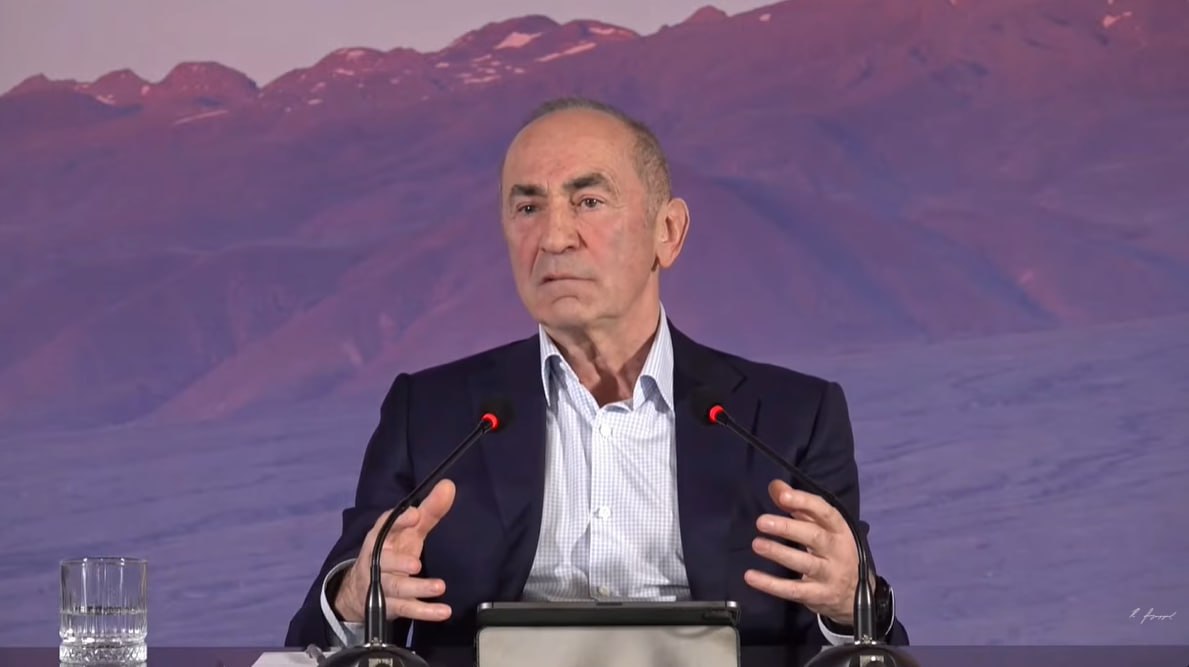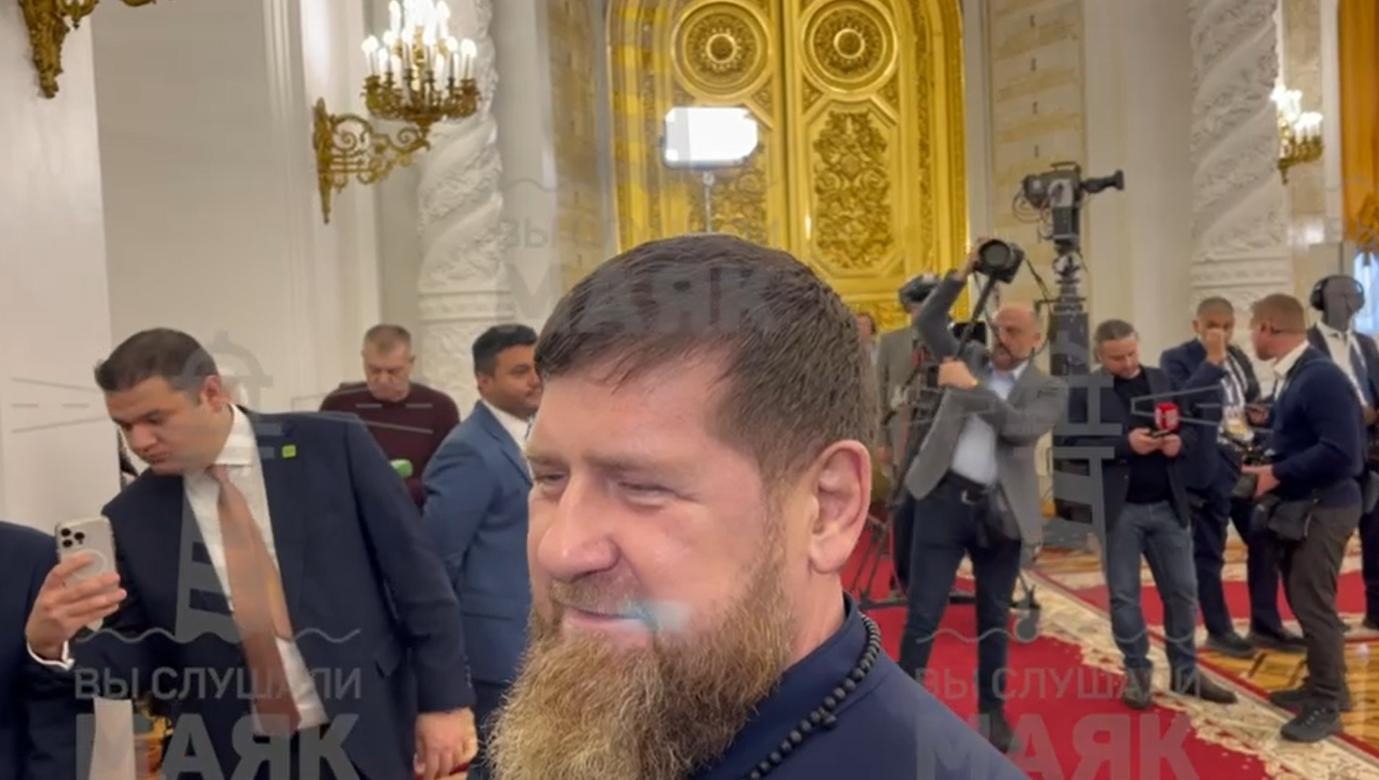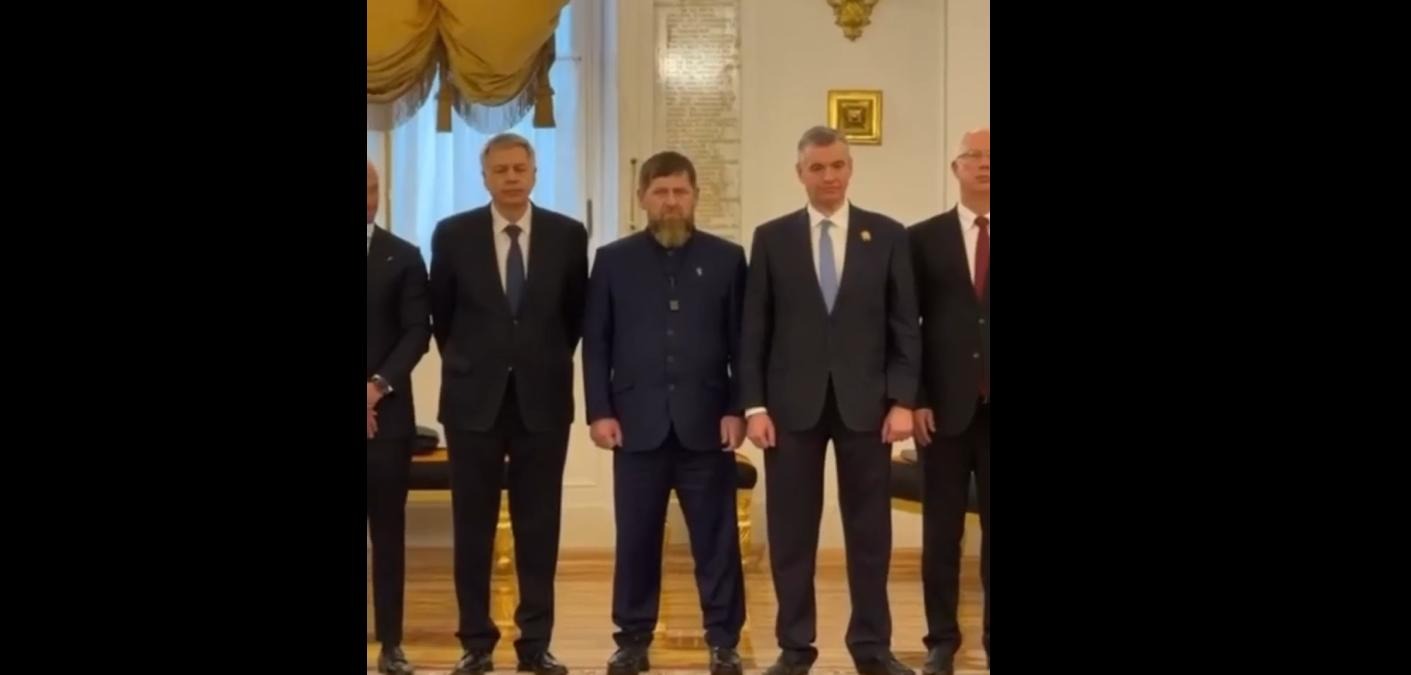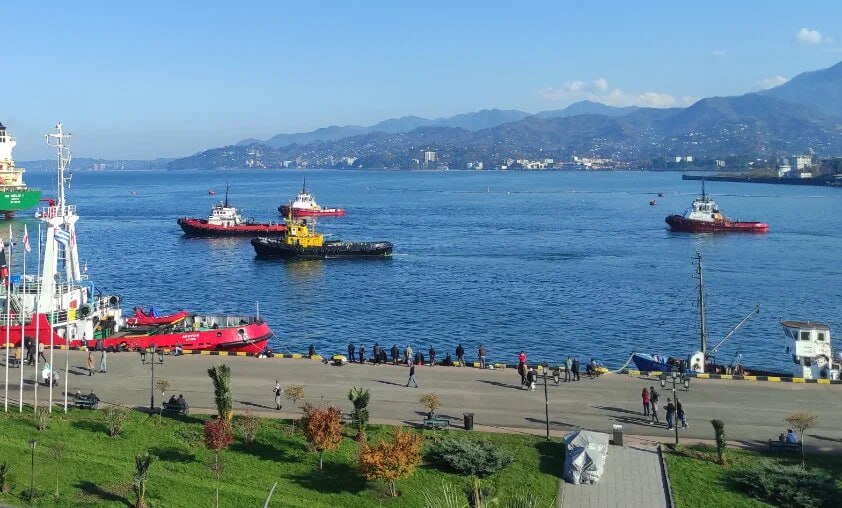Former Armenian President Robert Kocharyan warned against the current government's flippant attitude toward possible harsh responses from Moscow. He believes the authorities fail to grasp the scale of the potential impact Russia could have, including tariff revisions and export blockages.

August 24, 2001
***
At about 5.45 in the city of Argun, employees of the Russian security forces, who arrived in two armored personnel carriers and a Ural truck, were taken away from apartment No. 3, located at the address: per. Zheleznodorozhny, 21, Mehdi Yakhyaevich Khamidov, born in 1951
On the fact of his abduction (Article 126, part 2 of the Criminal Code of the Russian Federation), the Argun inter-district prosecutor's office already on August 28 opened a criminal case No. 45093. It was suspended "due to the impossibility of identifying the persons to be prosecuted as accused" (Article 195, Clause 3 of the Code of Criminal Procedure of the RSFSR) as early as October 28, 2001. Employees of the HRC "Memorial" do not have any information about the further fate of this person.
***
Servicemen of the federal forces and employees of special forces of the Ministry of Internal Affairs of the Russian Federation carried out a “cleansing operation” in the village of Goiskoye. About fifty people were detained, five were taken to the Urus-Martan VOVD, but by nightfall they were all released. The operation was accompanied by theft and destruction of property of local residents.
In the morning, the residents of the settlement were awakened by fierce machine-gun fire coming from the city of Urus-Martan. From time to time, shots were heard either from BMP cannons, or from underbarrel grenade launchers. The people were frightened as the shooting came very close to their homes. But suddenly, just as it started, it stopped. Now only the rumble of engines was clearly audible: it became clear that Russian units had approached the village. After some time, the first cars of local residents drove towards the district center. But they were stopped on the northwestern outskirts of Goisky. The village on the other side was completely blocked. Then the troops took up positions along the entire perimeter of the settlement and on its streets. A "cleansing operation" began, which was led by the deputy commandant of the Urus-Martan district, Colonel V. Kuznetsov.
Escorted by armored personnel carriers and "Urals", employees of the Russian security forces began to bypass households. Alternately blocking them, up to six military men entered the yard. Having found out who was the owner, the head of the group collected the passports of the men living there and wrote them down. At the same time, the search began. At the same time, no one presented a decision to produce it to any villager, did not invite witnesses, and did not draw up a protocol based on the results of the search. In other words, the employees of law enforcement agencies participating in the operation did not comply with the requirements of Articles 168, 169, 170,171, 176 and 177 of the Code of Criminal Procedure of the RSFSR.
Some men were detained without explanation. Their passports were confiscated and they were sent to the northwestern outskirts of the village, where the temporary headquarters of the forces conducting the “cleansing” was located. There was also a UAZ car with equipment for fingerprinting. The detainees were put on the ground in a row one at a time, they were not allowed to speak loudly and leave their places, they were not allowed to go to the toilet or drink water. The bulk of the people were held by the military until 2 pm, and some were released only in the evening. One woman, the mother of four children, Satsita Yeskieva, was also detained - the reason for this was not explained to her. The military also took 59-year-old G.A.Khazhmuradov to the outskirts of the village. Each person brought there was examined by a doctor for the presence of wounds on the body, then the employees of the Urus-Martan VOVD took fingerprints. Residents who passed the fingerprint examination were given certificates called sketches. In the afternoon, the number of detainees exceeded 50 people.
Worried, the relatives of the detainees rushed to the headquarters. A large number of local residents gathered on the rural outskirts, but the military did not let them through to their leadership and did not explain the reasons for the mass detentions.
Repeated searches began in Goyskoye, mainly in those houses from which the men had been taken away. This time it was done by much more military men. The owners no longer had time to keep track of them: the men were detained, and the women stood on the outskirts of the countryside, waiting for their release. During the searches, things began to disappear: for example, the military stole an old pocket watch from the Itslaevs, cigarettes and other items disappeared from the kiosks of the Visarigovs and Dakhtaevs, and a tape recorder disappeared from the Dakashevs.
There were also cases of robbery. So, on three KAMAZ trucks they took out the foundation blocks that belonged to Shaman Bakhaev. They were allocated to him in 1997 to restore the house destroyed during the first war. No attention was paid to requests not to take them away. When the requests of the owner got tired, one of the soldiers said: "If you, old man, do not fall behind, I will find a land mine in your house." Shaman Bakhaev had to come to terms with the robbery because of the fear of the execution of this threat, fraught with trouble for him. From another local resident, the military took away a tent allocated by the authorities after the destruction of the house during the hostilities in the village in 1996. In no such case were acts of confiscation drawn up.
There were also facts of deliberate destruction of the property of residents. Khasan Khagaev was found to have three tons of gasoline in his tank. The military poured it onto the ground, while part of it fell into the Goitinka River, which flows through the village. In the courtyard of Nurda Khadisov, they blew up a container in which they kept liquid fuel for heating a residential building. The military later said they did not know what it was for, and that they allegedly confused it with an artisanal oil refinery.
A native of the village of Goiskoye is Hussein Isabaev, brigadier general of the CRI. To his house, which was not damaged during the period of active hostilities, the military arrived in two armored personnel carriers. After conducting a search, they began to prepare it for blowing up. The neighbors did not respond to the requests of the neighbors not to blow up the house, as it is dangerous for those who live nearby. Having planted explosives, they only warned their neighbor, U. Idigov, that he had only two minutes to shelter his family. After that, the specified house was blown up.
After 2 p.m., the head of the administration of the village of Goiskoye was let through to the temporary headquarters. By that time, all the detainees managed to undergo fingerprinting and continued to sit on the ground. However, now they were allowed to stand up and were not required to sit in one line. Some of them even got their passports back. Colonel V. Kuznetsov granted the request of the head of the village administration to release those who gave their fingerprints. Most of them returned to the village. There were 15 people on the field.
By the evening of August 24, the "cleansing operation" in Goyskoye was completed, and the military unblocked the village. They took five people with them to Urus-Martan, including Satsita Eskieva. In the VOVD of the district they were again interrogated. At the same time, Vakha Eskiev was beaten: an employee of the temporary department hit him at least twice with a stick on the forearm and on the back; several times he was hit on the head with a plastic bottle with water inside. On the morning of August 25, an employee of the HRC "Memorial" talked to the victim and saw a distinct bruise on his left forearm. In addition, Vakha Eskiev was threatened: the investigator asked him if he knew that people were disappearing from the VOVD, thereby hinting that the same could happen to him. He was then told that the military could shoot him "while trying to escape." The actions of the investigator are criminally punishable and are qualified by Articles 116 (“Battery”) and 119 (“Threat to kill or inflict grievous bodily harm”) of the Criminal Code of the Russian Federation. It must be said that since March 2001, the VOVD of the Urus-Martan District was staffed with employees of the Ministry of Internal Affairs of Bashkortostan. With their arrival, complaints of beatings ceased, and the described case is the first of its kind in the last six months.
When it got dark, the detainees from the Urus-Martan VOVD were released. Because of the coming “curfew” hour, they had to spend the night in the regional center with relatives.
From the book "People Live Here", Usam Baisaev, Dmitry Grushkin, 2006



